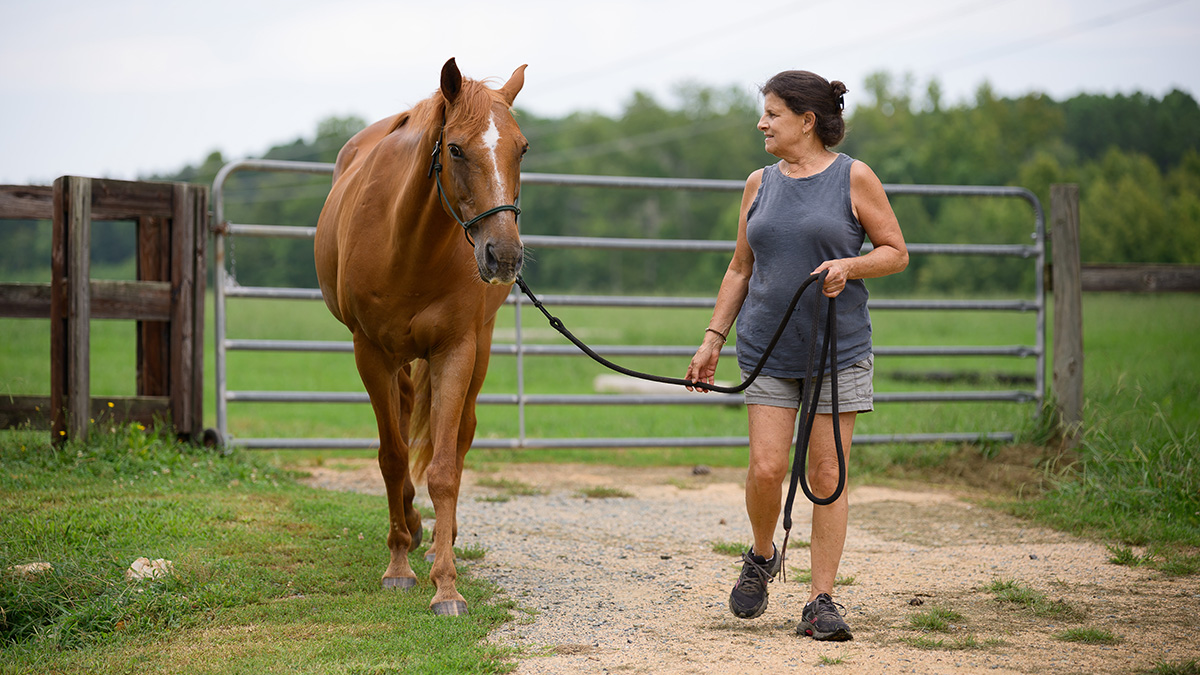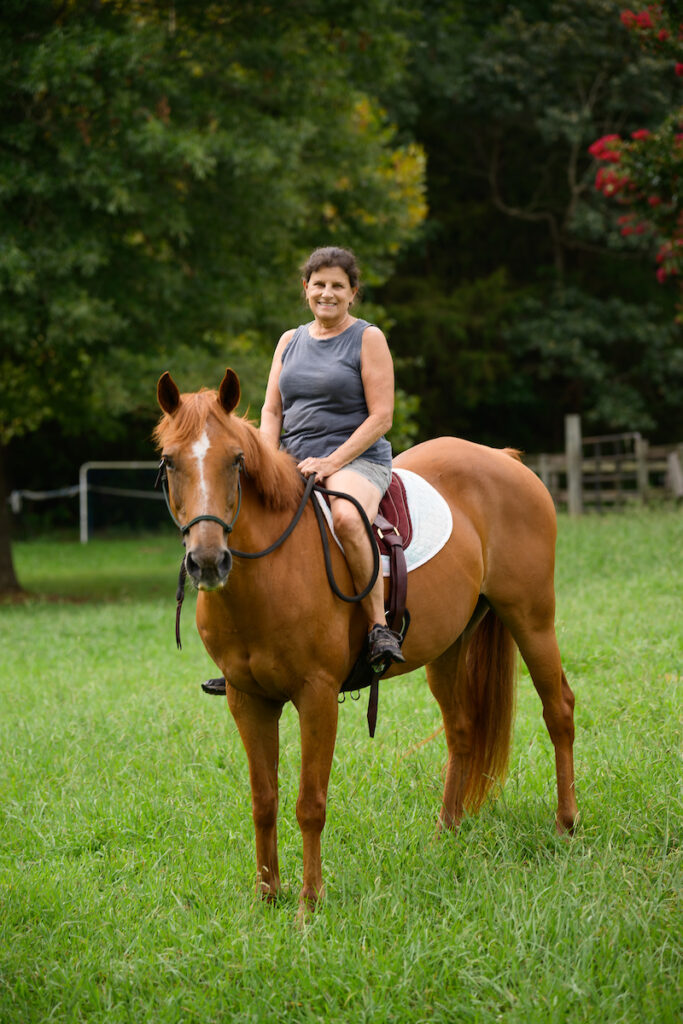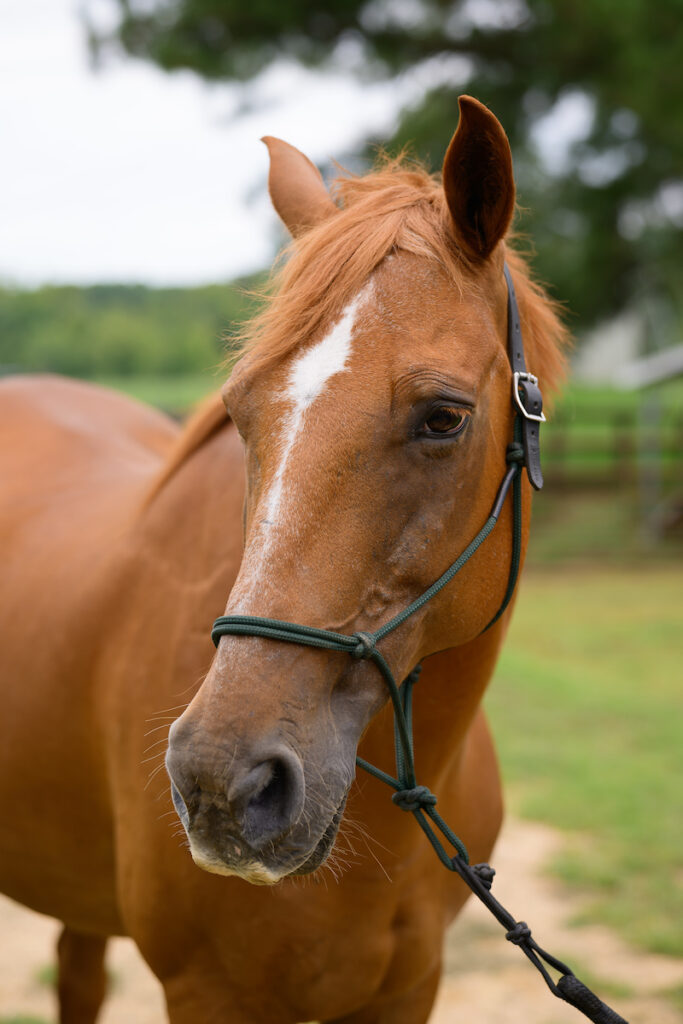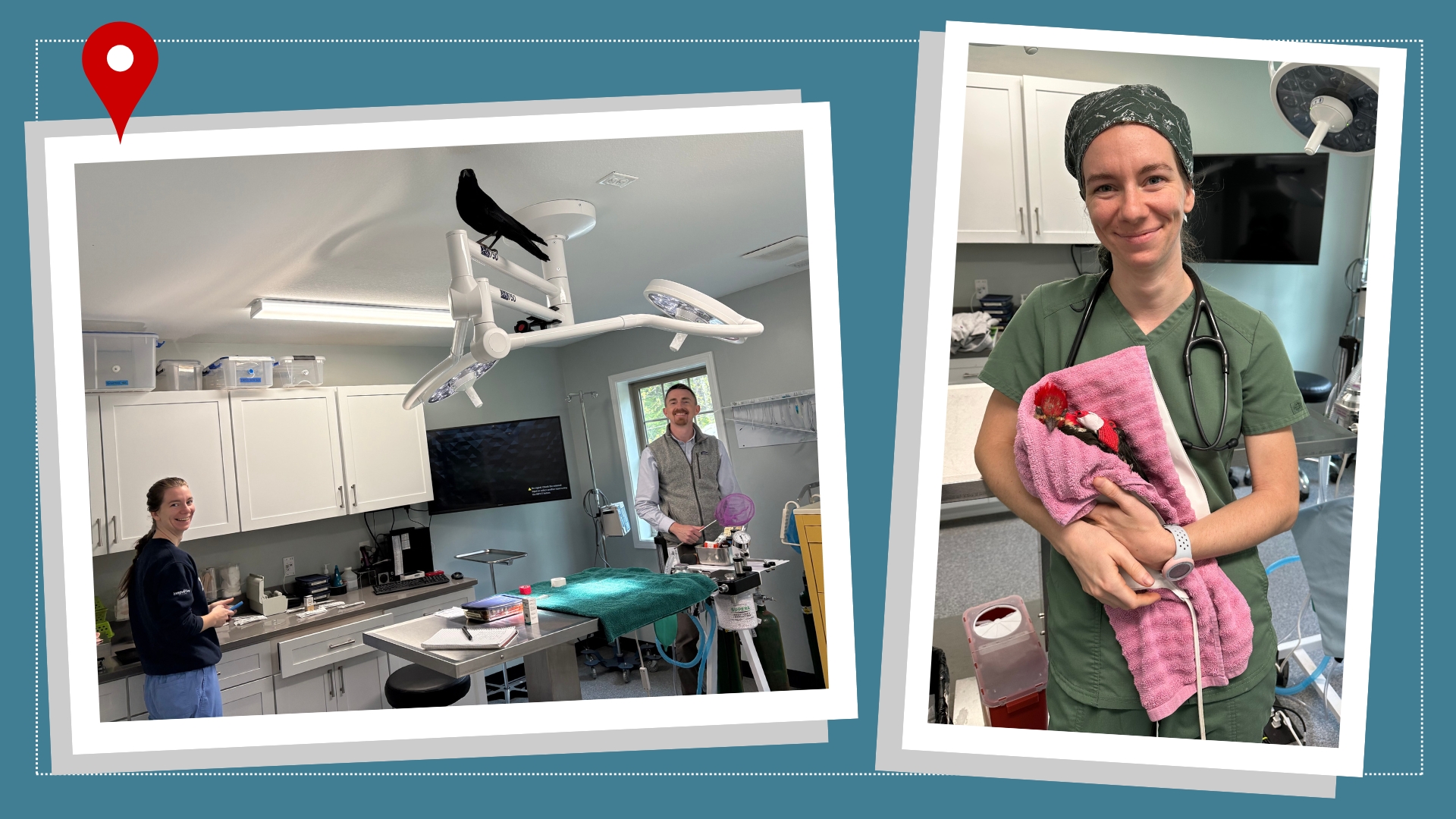Making Every Second Count
Paddy, a 20-year-old quarter horse, was in dire shape when he arrived at the NC State Veterinary Hospital in severe abdominal pain earlier this year. Veterinarians rushed to save his life and get him back to spending time with his owner.

Mardi Glasser has always loved horses. She got her first horse when she was just 12 years old and has continued to have one ready to ride throughout the various phases of her life.
Paddy, a quarter horse that she bought 12 years ago when he was 8, is the one she calls her “mid-life crisis horse.” As she neared retirement age and knew that her riding days might soon come to an end, she purchased Paddy, anticipating that he would be her last horse.
“He’s just a cute, happy little guy. Very curious,” Glasser said. “He’s always got an opinion, but he’s very easy going. I got him mainly as a pleasure horse, and he and I have done a lot together. We have a lot of confidence in each other.”
Glasser intended to ride with Paddy until the two couldn’t anymore. In April, when Paddy was thrashing on the ground in pain at his stable, that day appeared to be coming way too soon. A strangulating lipoma — a fatty tumor that wraps itself around the intestine — had cut off the blood supply to a large segment of his small intestine, and, without surgery, Paddy would die.
Veterinarians at the NC State Veterinary Hospital became Paddy’s only chance for survival when he became one of the nearly 300 colic horses treated by NC State veterinarians annually.
Comprehensive Care at the Veterinary Hospital
“Colic” is a word that no horse owner wants to hear. Although it’s a broad term to describe abdominal pain caused by many conditions, from gas in the stomach to a feed impaction, it presents itself in the same way: The horse is in pain.
Glasser knew what the situation was right away. She called her vet to come evaluate Paddy but quickly saw that he needed more advanced care than he could receive on the farm outside Graham, North Carolina.
“No sooner did [the vet] drive out the driveway that he started throwing himself down again,” Glasser recalled. “I called her right back and said, ‘We need to go to the vet school.’ There was no doubt in my mind. I don’t even know where else we could take a horse that would probably need colic surgery. He was in excruciating pain, and we pretty much got him there just in time.”
During the 45-minute drive to Raleigh, Paddy continued to throw himself onto the ground and roll in the trailer. When the horse arrived at the hospital, the veterinary staff moved quickly to stabilize his condition and assess him through abdominal ultrasound, lab tests and IV fluids.
“The main goal of our exam is always deciding, ‘Is this a surgical case or a medical case?’” said Dr. Kate Hepworth, an assistant professor of equine medicine at the NC State College of Veterinary Medicine. “It’s often not black and white.”
For Paddy, the case was clear: If he didn’t have surgery, he would die. Even with surgery, the odds were against the horse because of his age and the amount of intestines they anticipated needing to remove. Then, if Paddy survived the colic surgery, complications could arise in the days that followed.
“We knew how much Mardi loved him,” Hepworth said. “A lot of our job sometimes is giving people reasonable expectations. We told her the only way to know if he would make it was to try, but the prognosis was really poor. She gave him a shot, and we’re so glad she did.”
With Glasser’s go-ahead, surgeons led by Dr. Elsa Ludwig removed 25 feet of Paddy’s small intestine during a four-hour surgery. The following 48 hours were critical, and the NC State team monitored Paddy continuously. When Glasser stopped to visit with Paddy the day after the surgery, the horse was still sedated and struggling. By the next morning, however, the internal medicine team lifted Glasser’s spirits by sending her a picture showing Paddy walking through the large animal hospital.
“Literally within 48 hours, he made an incredible turnaround, and he did pretty good from then on,” Glasser said. “He just came around and did great and was discharged eight days after he came in.”


After a brief stint at another barn to recover, Paddy returned home and started exercising within a few months. Before long, Glasser and Paddy were back to riding.
“I’ve been riding him around 15-20 minutes at a time bareback, and he’s doing just great,” she said. “We’re not going to do anything strenuous, and I’m going to let him just live out his life.”
It’s an option that, just a few months ago, Glasser didn’t think she’d have. She credits the veterinarians at the NC State Veterinary Hospital for giving her more time with Paddy.
“You go to the vet school, and you know it’s going to be a cutting-edge facility,” she said. “It’s a teaching hospital. You’re going to get the newest stuff and get a lot of people coming together with different experiences, and they’re going to put their knowledge together to do what’s best for the horse.”
Hepworth said the comprehensive, around-the-clock care that the NC State Veterinary Hospital can provide for its equine patients makes the college unique and specifically suited to tackle challenging cases like Paddy’s.
Many veterinarians can take an ultrasound machine into the field and conduct many minor surgical procedures there, but colic surgery is not one of them, she said.
“It’s not so much having the ability to figure out what’s wrong, but it’s the ability to fix it and manage it all in one place,” Hepworth said. “At NC State, we have specialists in many different disciplines all in one place, and clinicians, nursing staff and students all dedicated to providing comprehensive patient care. Things also change very fast in a case like Paddy’s, and every minute counts.”
- Categories:


